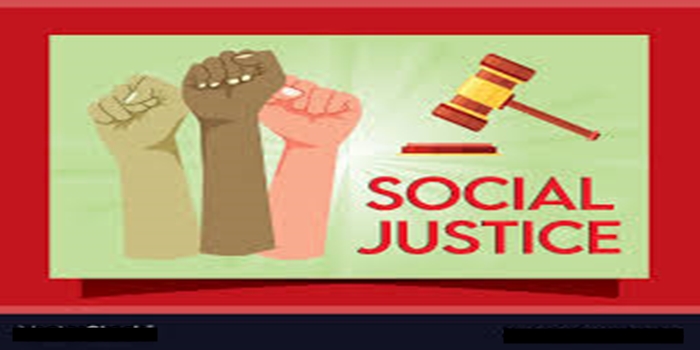In this article, we discussed the meaning of social justice, the examples, the principles, the goal, also talked about the importance.
Definition
Social justice is a political and moral perception that aims to ensure fairness and equality in the distribution of wealth, opportunities, and privileges in a society. It also involves protecting and recognizing the rights of individuals.
Examples of social justice include:
Equal opportunity employment: Everyone should have the opportunity to work in a job that they are qualified for
Free public education: Everyone should have access to education
Welfare programs: Programs that help people in need
Universal right to vote: Everyone should have the right to vote in elections
Health care: Everyone should have access to health care
Participation: Everyone should have the right to participate in decisions that affect their lives
Respect for human rights: Everyone’s human rights should be protected and promoted
Social justice can help to:
Promote equality
Promote inclusivity
Control the effects of discrimination
Empower those who have been silenced
Give everyone a fighting chance at the life they want
The principles of social justice include:
Human rights
Social justice is based on the idea that everyone is equal and has human rights.
Human rights and social justice are often discussed together, though they have some differences.
Participation
Participation is the idea that everyone should have a voice and a role in decisions that affect their lives.
Participation allows people to share their opinions and concerns.
Access
Access is the idea that everyone should have equal access to resources and opportunities.
This includes access to food, water, shelter, education, health care, and employment.
Equity
Equity is the idea that resources and opportunities should be distributed fairly and compassionately.
Diversity
Diversity is another principle of social justice.
Social justice is the idea that society should be fair and just, and that everyone should have equal access to resources and opportunities.
Social justice is important because it promotes equality, respect for diversity, and the application of human rights. It also helps to empower marginalized communities and reduce prejudice.
The important of social justice
Promotes equality
Social justice aims to ensure that everyone has equal access to opportunities, resources, and rights.
Empowers marginalized communities
They helps people speak up for their rights and take an active role in determining their own destinies.
Fosters inclusivity
Social justice creates environments where diversity is celebrated and respected.
Defends people from racism
it helps people of every race live well and have equal opportunities.
Helps promote equality between genders
it strives to bridge the gap and empower women.
Improves the lives of disadvantaged groups
Social justice often leads to efforts to redistribute wealth to some of the underprivileged groups.
Social justice can be achieved through efforts to:
Reduce inequalities and prejudice
Provide income, jobs, and education support and opportunities
Respect, protect, and promote everyone’s human rights
Ensure everyone has access to the resources necessary to succeed
Goals of social justice
Equal access: it aims to ensure that everyone has equal access to wealth, opportunities, and privileges.
Fair distribution: it aims to ensure that resources, opportunities, and privileges are distributed fairly.
Address historical injustices: This aims to address historical injustices and improve the lives of marginalized groups.
Recognize rights: it aims to recognize and support the rights and needs of all people.
Challenge oppression: this aims to challenge oppression and dominance.
Promote collaboration: It aims to promote collaboration and solidarity.
Conclusion
Social justice is the view that everyone deserves equal economic, political and social rights and opportunities. Social workers aim to open the doors of access and opportunity for everyone, particularly those in greatest need. It’s also important to the safety and security of individuals and communities.


